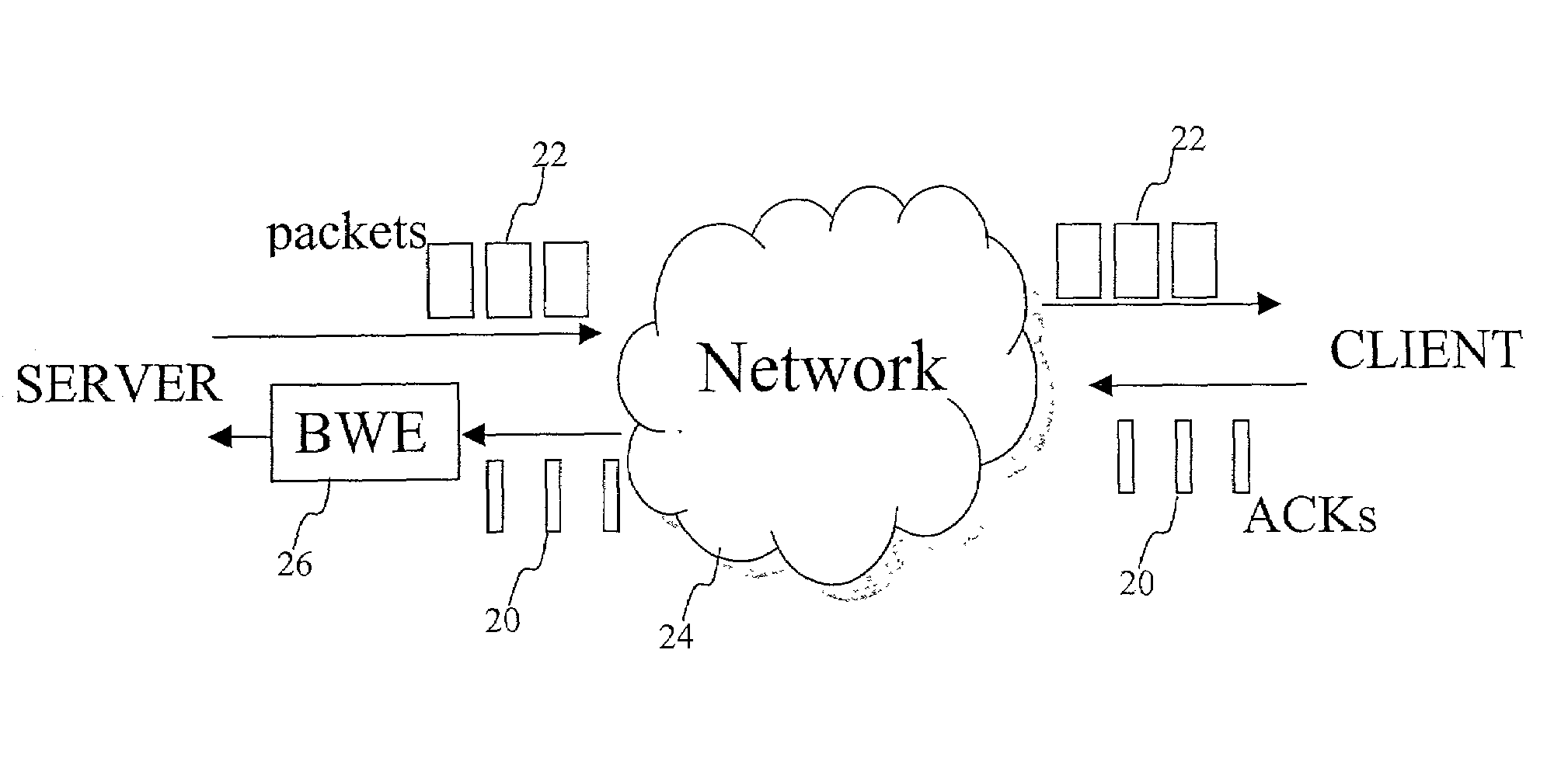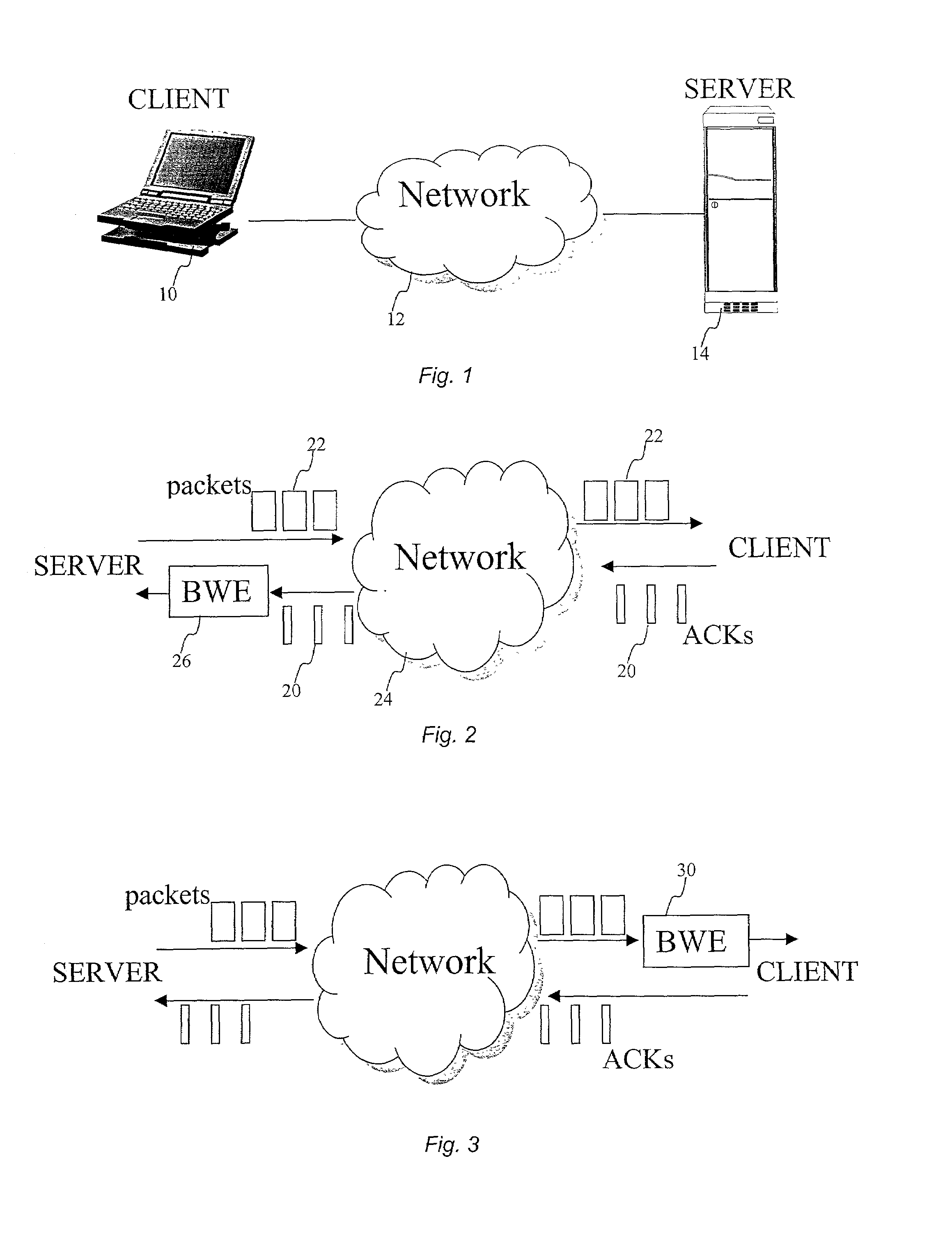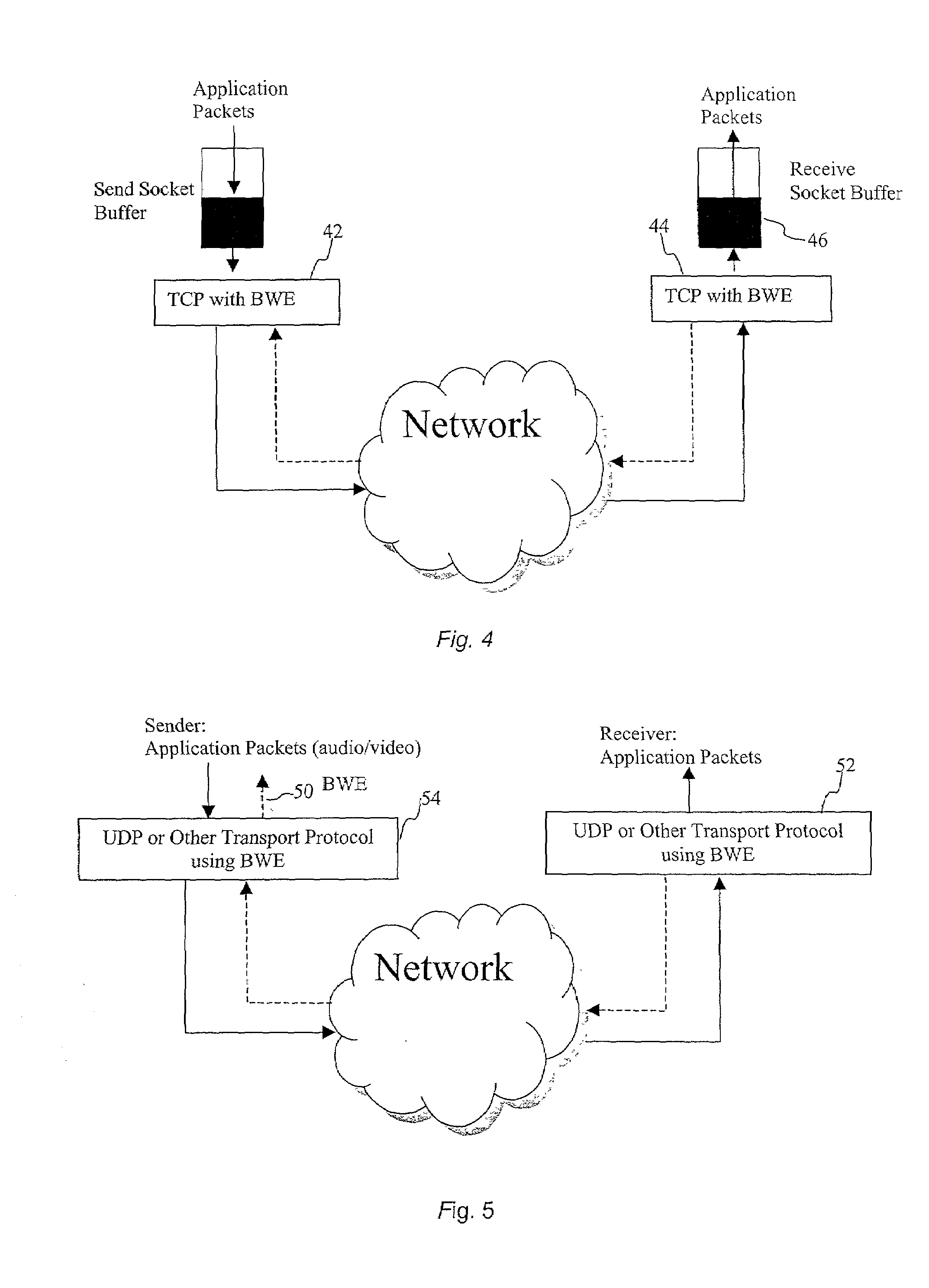End-to-end bandwidth estimation for congestion control in packet switching networks
a packet switching network and end-to-end bandwidth technology, applied in data switching networks, high-level techniques, instruments, etc., can solve problems such as congestion collapse, tcp performance problems, and tcp connection loss of packets, so as to improve tcp performance, increase network bandwidth utilization, and improve network bandwidth utilization
- Summary
- Abstract
- Description
- Claims
- Application Information
AI Technical Summary
Benefits of technology
Problems solved by technology
Method used
Image
Examples
Embodiment Construction
[0029]A known Internet client-server system is implemented as illustrated in FIG. 1. A client machine 10 is connected to a server machine 14 via a network 12. For illustrative purposes, network 12 is the Internet, an intranet an extranet, a satellite network or any other wireless or wired network. A server machine 14 is accessible by clients, one of which is illustrated by client machine 10. A representative server is a computer comprising a processor, an operating system such as Microsoft Windows®, IBM OS / 2®, Sun Solaris®, Unix, Linux, a Web server program such as Netscape Enterprise server®, Apache®, Microsoft Internet Information Server®. The server also includes an Application Program Interface (API) that allows an application developer to extend or customize some parameters of the transport layers such as the size of the socket buffers. The server can include application programs for audio / video streaming. The server can be a mobile server. The server can be part of a Global Ho...
PUM
 Login to View More
Login to View More Abstract
Description
Claims
Application Information
 Login to View More
Login to View More - R&D
- Intellectual Property
- Life Sciences
- Materials
- Tech Scout
- Unparalleled Data Quality
- Higher Quality Content
- 60% Fewer Hallucinations
Browse by: Latest US Patents, China's latest patents, Technical Efficacy Thesaurus, Application Domain, Technology Topic, Popular Technical Reports.
© 2025 PatSnap. All rights reserved.Legal|Privacy policy|Modern Slavery Act Transparency Statement|Sitemap|About US| Contact US: help@patsnap.com



